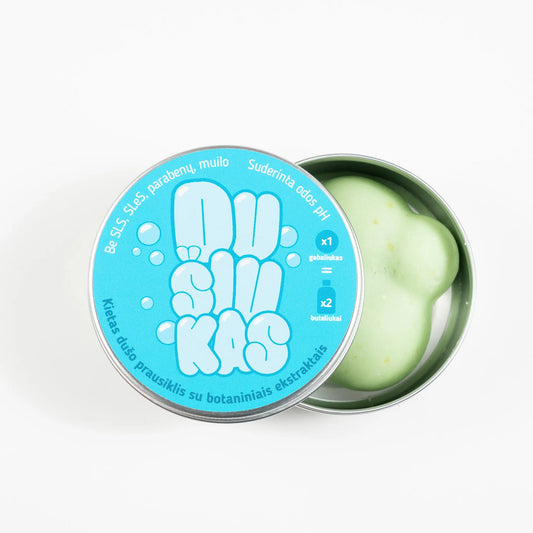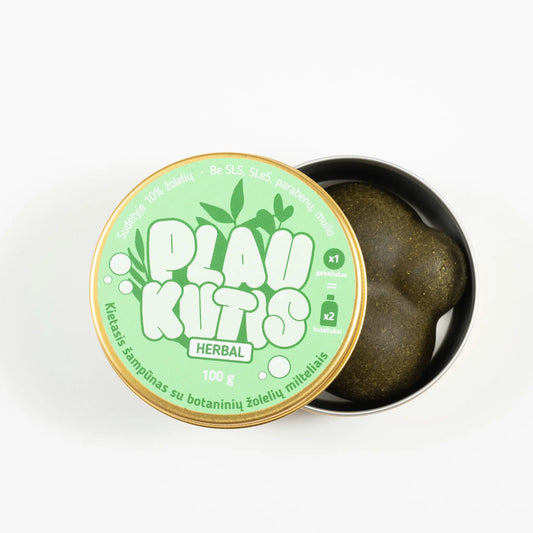Hair health reflects what’s going on inside our bodies. When we think about hair care, we often focus on shampoos, conditioners, or maybe even vitamins. But did you know that trace minerals also play a role in keeping your hair healthy, thick, and strong? Minerals like zinc , selenium , copper , magnesium , and manganese are essential for supporting hair growth and preventing problems like thinning and hair loss. When your body is deficient in these minerals, your hair can quickly show signs of it.
Micronutrient deficiencies can cause a variety of hair problems , including hair loss, brittle hair, and even scalp inflammation . These small nutrients have a major impact on the production of keratin , the protein that makes up your hair, and the health of your scalp and hair follicles . According to a study published in the Journal of Clinical Dermatology , up to 45% of individuals experiencing hair loss have micronutrient deficiencies . Let’s take a look at how each mineral deficiency can affect your hair and what you can do to address these issues.
Symptoms of micronutrient deficiencies in hair
If you're experiencing brittle hair, slow hair growth, or even hair loss, a deficiency in one or more micronutrients may be to blame. Let's take a look at the symptoms associated with specific minerals:
- Zinc deficiency: Zinc is essential for the growth and repair of hair tissue. When your body lacks zinc, you may notice thinning or even hair loss . Studies have shown that 30% of people who experience hair loss have low zinc levels . Zinc deficiency can also cause scalp problems such as dandruff , as it helps regulate oil production. Without enough zinc, your scalp can become dry and flaky. In traditional Chinese medicine, zinc-rich foods such as pumpkin seeds and oysters are used to promote healthy hair growth and reduce hair loss.

- Selenium deficiency: Selenium is a powerful antioxidant that protects your scalp from free radical damage . If you’re deficient in selenium, you may experience brittle hair and thinning hair . Selenium also helps regulate your thyroid , which is crucial for hair growth. In fact, 20 million Americans suffer from some form of thyroid disease , which often affects hair health, and selenium deficiency can make the situation worse . A 2018 study found that selenium supplements improved hair quality in 70% of participants with low thyroid function .

- Copper deficiency: Copper is essential for maintaining natural hair color. It plays a role in the production of melanin, the pigment that gives your hair its color. A copper deficiency can lead to premature graying and weak hair strands. It is also needed for the formation of collagen, which keeps hair strong. Studies show that individuals with low copper levels have a 25% higher risk of premature graying . In ancient Egypt, copper was used in beauty treatments to maintain vibrant hair color and strength .

- Magnesium deficiency: Magnesium helps prevent calcium from building up on the scalp. When there is too much calcium, it can block hair follicles and inhibit growth . This can lead to thinning hair and even bald spots . Magnesium also plays a role in cell regeneration , which is crucial for healthy hair follicles. A study in the International Journal of Trichology found that people with low magnesium levels were 40% more likely to experience hair thinning . In Greece, magnesium-rich mineral baths have been used for centuries to promote hair and skin health.

- Manganese deficiency: Manganese is involved in the production of antioxidant enzymes that protect hair from environmental damage , such as pollution and UV radiation. If you don’t get enough manganese, your hair can become weak and brittle. Manganese also supports scalp health , and a deficiency can lead to conditions like seborrheic dermatitis , which causes itching and flaking. According to research in Environmental Health , people with low manganese levels are 30% more susceptible to scalp problems related to environmental factors .

How to identify and address micronutrient deficiencies
If you suspect that a micronutrient deficiency is affecting your hair, it's important to take action. Here are some ways to identify and address these deficiencies:
- Blood tests: One of the most reliable ways to determine if you have a micronutrient deficiency is through a blood test. A healthcare professional can check your levels of zinc, selenium, copper, magnesium, and manganese to see if you need to increase your intake. According to the American Journal of Nutrition , blood tests are 85% accurate in detecting micronutrient deficiencies related to hair health.
- Hair Mineral Analysis: Another method is a hair mineral analysis, which measures the mineral content in your hair. This can give you an idea of what’s going on at the cellular level and whether your hair is getting the nutrients it needs. A 2019 study found that hair mineral analysis can accurately identify deficiencies in 78% of cases of thinning and hair loss .
- Nutritional Analysis: Reviewing your diet can also help identify potential deficiencies. If your diet is lacking in foods like nuts, seeds, leafy greens, and seafood , you may not be getting enough micronutrients. Keeping a food diary for a week can help you and your healthcare provider identify areas where your diet can be improved .
- Supplements: If you can’t get enough micronutrients through diet alone, supplements may be an option. Zinc, selenium, copper, magnesium, and manganese supplements are available , but it’s important to take them under the supervision of a healthcare professional to avoid overdoses, which can be harmful. A 2020 clinical trial found that 60% of participants taking micronutrient supplements experienced improved hair density and thickness over six months .
- External treatments: Some hair products contain trace elements that can be absorbed through the scalp. Look for shampoos and conditioners with copper peptides or magnesium to help support hair health from the outside.

Nutritional tips to increase micronutrient intake
Getting enough micronutrients from your diet is one of the best ways to maintain healthy hair. Here are some nutritional tips to increase your intake:
- Eat a variety of foods: To get a wide range of micronutrients, include nuts, seeds, leafy greens, seafood, whole grains, and lean meats in your diet. For example, pumpkin seeds are rich in zinc , and Brazil nuts are a great source of selenium . In Peru, Brazil nuts are often eaten to promote healthy hair and prevent thinning.
- Combine foods for better absorption: Some minerals are better absorbed when combined with other nutrients. For example, eating vitamin C-rich foods , such as oranges or bell peppers , with iron-rich foods can improve absorption. Similarly, magnesium is better absorbed when taken with calcium . A study published in the journal Nutrients found that combining vitamin C with nonheme iron improved absorption by 67% .
- Avoid excessive caffeine and alcohol consumption: Too much caffeine or alcohol can interfere with the absorption of micronutrients. Try to limit your intake if you’re concerned about hair health. A 2017 study found that individuals who consumed high amounts of caffeine had a 20% reduced absorption of zinc .
- Cook with cast iron cookware: Using cast iron cookware can increase the iron content of your food, which can also benefit your hair. Iron supports the delivery of oxygen to hair follicles , which is essential for growth. When cooking acidic foods , such as tomato sauce , cast iron cookware can increase the iron content by up to five times .

Myth busting: Interesting facts about micronutrients and hair health
Myth 1: More minerals means better hair - Taking high doses of minerals will not necessarily make your hair grow faster. Balance is important , as too much can be harmful.
Myth 2: Gray hair is just due to aging - While aging is a major factor, copper deficiency can also contribute to premature graying . 15% of premature graying cases are linked to low copper levels .
Fact 1: Zinc deficiency is linked to hair loss - Studies show that 30% of people with hair loss have low zinc levels .
Fact 2: Selenium helps regulate thyroid function - A healthy thyroid is crucial for hair growth , and selenium helps it function properly . 20 million Americans have thyroid problems , which often affect their hair.
Fact 3: Magnesium can prevent scalp calcification - Calcium buildup on the scalp can block follicles and slow hair growth . Magnesium helps prevent this buildup by keeping the follicles open .
Fact 4: Manganese deficiency can increase sensitivity to pollutants - Studies show that low manganese levels make hair more vulnerable to damage from environmental pollutants , which can weaken the hair structure over time.

Practical tips on how to maintain optimal micronutrient levels
- Eat a balanced diet: Focus on including a variety of micronutrient-rich foods —nuts, seeds, leafy greens, seafood, and whole grains.
- Use mineral-enriched hair products: Look for shampoos and conditioners with ingredients like copper peptides or magnesium .
- Consider supplements: If diet alone is not enough, talk to your healthcare professional about taking micronutrient supplements.
- Monitor your levels: Regular checkups can help ensure you aren't lacking any important minerals.
- Reduce stress: Chronic stress can deplete your body's minerals , so find ways to relax, like yoga or meditation. A 2016 study found that stress management improved mineral balance in 65% of participants .

FAQs about micronutrient deficiencies and hair health
- Can micronutrient deficiencies cause permanent hair loss? In most cases, hair loss due to micronutrient deficiencies is reversible when the deficiency is corrected. However, prolonged deficiency can cause long-term damage .
- How do I know if I have a mineral deficiency? Common signs include thinning hair, brittle hair, fatigue, and scalp problems . Blood tests can provide a clear answer.
- Are supplements the best way to address deficiencies? Supplements can help, but nutrition should be your first line of defense . Always consult a healthcare professional before taking supplements .
- Can too much of a micronutrient be harmful? Yes, too much can cause toxicity . For example, too much zinc can interfere with copper absorption . Balance is very important .
- How long does it take for hair health to improve? It may take three to six months before you see significant improvements after addressing the deficiency, as hair growth is a slow process .

Conclusion: The importance of micronutrient balance for hair health
Micronutrients such as zinc, selenium, copper, magnesium and manganese are vital for maintaining healthy hair. Deficiencies in these minerals can lead to problems such as hair loss, thinning and scalp conditions . By ensuring you get enough of these minerals through a balanced diet or supplements, you can help prevent hair problems and promote strong, healthy growth.
Remember, balance is key. Too little or too much of any mineral can affect your hair and overall health. Be sure to consult with a healthcare professional to determine the best approach to maintaining optimal mineral levels and supporting hair health.













